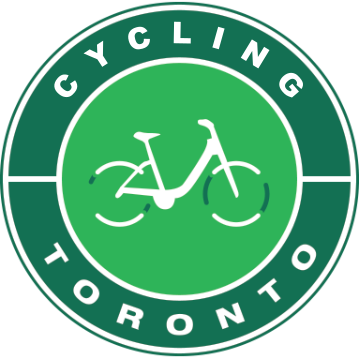The screenshot was taken from a live stream at 1:30pm on a Wednesday, not during long-weekend rush hour.
The Gardiner, just like the 401 and the DVP, are a traffic nightmare nearly all the time, yet they don’t have bike lanes on them.
This isn’t some strange coincidence or conspiracy.
Car dependency, rather than people riding bikes, taking public transit, or walking, is the real problem causing traffic and gridlock.
You are not in traffic, you are traffic.
One driver to the driver in the next car: “You are the traffic!”
Not me though. I’m just trying to drive to my destination and I’m thwarted by all this traffic!
I always thought traffic was caused by everyone but me!
Those bastards!
What bothers me the most about Bill 212, Reducing Gridlock, Saving You Time Act its solely “car brained”.
As a example the 401 on an average weekday serves about 500,000 commuters. While the subway system in Toronto on a average weekday servers close to three times that. Could you imaging if all these transits riders instead commutted by car?
Average travel times have increase along the 401 by 30-40 seconds, while on the Toronto subway average travel times have increase on average by 15min.
By this metric why does this bill not look at increasing reliability of transite? Cough Cough Ellington LRT, Cough Cough Finch West LRT.
Transit by these metrics is more efficient in moving larger amounts of people, but it’s failing in moving them quickly due to mismanagement and lack of public funding.
Viable alternatives to car dependency is exactly what helps in Reducing Gridlock, and Saving You Time.
On most Toronto streets as a example with proper infrastructure planing and the addition of bike lanes average commute times have gone down. University Ave as a example saw average commute times go down by 30 seconds since the installation of bike lanes.
More people have chosen to cycle, walk, or take transit. This means less congestion caused by cars and a quicker commute.
You want bike lanes on the DVP, Gardner and 401? You’re far braver than I am.
Even if the city did add lanes, it likely would not fix this mess. Public transport is required for a city this size.
I think OP is just pointing out that bike lanes aren’t the source of all traffic, as the recently passed Bill 212 tries to say. Even without any bike infrastructure, the Gardner is jam packed, and it’s not even rush hour.
Exactly. Referring to Bill 212.
Granted, I would LOVE to have a “bike highway” stretching across the GTA with no intersections slowing us down.
100% percent agreed with that point, but I also believe that bill was about downtown roads. The Gardner is a highway.
The intersection just underneath there (around Spadina down to Lakeshore) is worse. That does have a bike lane IIRC but it’s rare to see anyone use it. Taking the bike lanes out isn’t going to make anything better for anyone
I swear to fuck if they rip out the bike lane on huntingwood I’ll lay infront on the machines.
No shit? Huh.
You’re such a troll. This is caused by construction.
Bikes cause far less road wear than cars, so more bikes and bike lanes would equal less construction and delays caused by it!
Also fewer cars on the road would reduce the travel time impact of road closures.
🤣
Not sure why you’re getting downvoted. While I agree with OPs point, the screenshot they took is literally where there are construction lane closures along the Gardiner and traffic is backed up at the best of times.
Construction is absolutely part of the cause of car traffic, as is car-dependency. When driving is the most convenient option for commuters to get downtown from the suburbs, then people drive and cause car traffic.
Alternatives such as transit going into the city and bicycles for shorter trips reduce the amount of cars on the road and therefore the amount of car traffic.
Toronto simply does not have space for all of the drivers, construction or no construction. If even 10% of people using transit switched to driving, Toronto would basically need to be bulldozed and replacrd with one big parking garage. All construction does is add to the delays.
Traffic is caused by people driving cars badly.
Traffic is worsened by people driving cars badly, but traffic is caused simply by people driving cars. Cars are highly space inefficient, especially when on average they’re moving ~1.4 people.
I also think that people forget that not everyone is driving because they want to. There are systemic issues that make other means of transportation infeasible for some people, situations, etc.
Roads do have maximum capacities and bottlenecks, though it is true that driver behaviour can make it worse. Or rather, makes it worse faster.
If an exit can only handle 50 cars per minute but 60 people per minute are heading down the highway towards that exit, that exit will back up by 10 cars per minute. Asshole drivers might further reduce the capacity to 40 cars per minute by doing last second lane changes that force people using the exit to slow down more or hit them. And they might slow down cars not headed for that exit when they need to slow or stop to find a gap because they tried to skip the line.
But at the end of the day, if the exit can only handle 50 cars out of 60 wanting to use it every minute, it will back up, and it will only take 5 minutes for there to be an extra minute worth of cars waiting to go through it, even if everyone is driving optimally.
This is factually incorrect. People driving cars badly can worsen car traffic, however it is far from the primary cause of car traffic.





